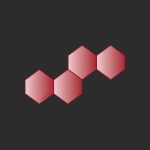Corcept Therapeutics Q2 2023 Earnings Report
Key Takeaways
Corcept Therapeutics announced positive results for the second quarter of 2023, with revenue reaching $117.7 million, a 14% increase compared to the same period in 2022. The company's net income was $27.5 million, and it raised its 2023 revenue guidance to $455 - $470 million. The company is actively advancing its clinical development programs, including studies for Cushing's syndrome, ovarian cancer, ALS, and NASH.
Revenue increased by 14% to $117.7 million compared to Q2 2022.
Net income was $27.5 million, slightly up from $27.4 million in Q2 2022.
2023 revenue guidance raised to $455 - $470 million.
Cash and investments totaled $363.3 million as of June 30, 2023.
Forward Guidance
Corcept Therapeutics anticipates continued revenue growth and is focused on advancing its clinical development programs. They expect data from multiple trials, an NDA submission for relacorilant in Cushing’s syndrome, and initiation of a Phase 2b trial for miricorilant in NASH.
Positive Outlook
- NDA submission for relacorilant in Cushing’s syndrome expected in Q2 2024.
- Enrollment nearing completion in Phase 3 GRADIENT trial for Cushing’s syndrome.
- CATALYST trial progressing ahead of schedule, with enrollment expected to complete in Q4.
- ROSELLA trial on track to complete enrollment by the end of the year.
- Phase 2b trial of miricorilant in patients with NASH to begin in Q4.
Challenges Ahead
- Risks related to the development of product candidates, including clinical attributes and regulatory approvals.
- Potential impact of competing treatments for hypercortisolism, including generic versions of Korlym.
- Ability to obtain acceptable prices and adequate insurance coverage and reimbursement for Korlym.
Historical Earnings Impact
Analyze how earnings announcements historically affect stock price performance
